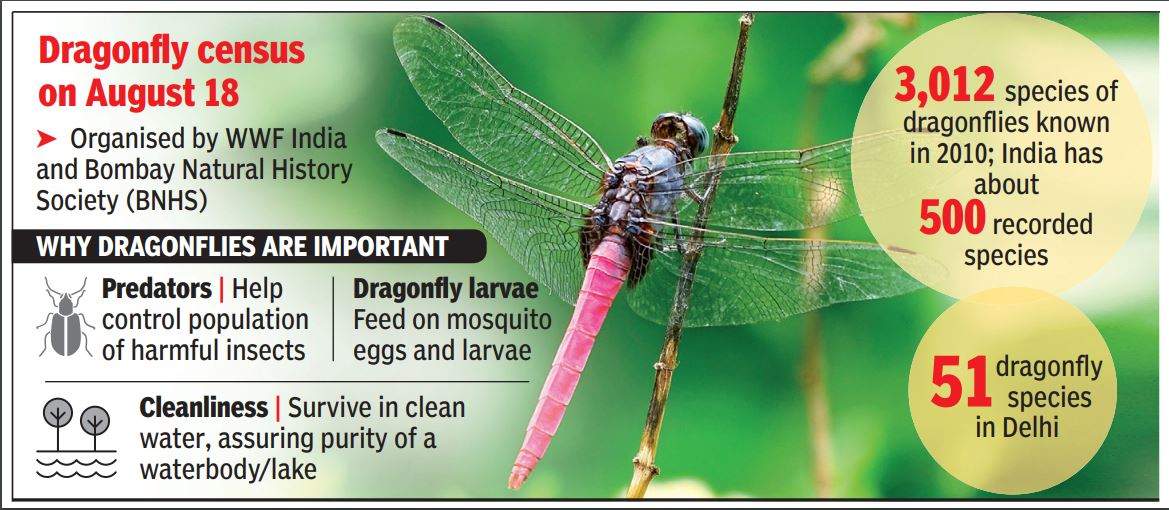Dragonfly Day | 17 Aug 2019
Recently, the World Wide Fund for Nature (WWF-India), in collaboration with the Bombay Natural History Society (BNHS) conducted dragonfly census and celebrated Dragonfly Day on August 18, in New Delhi and its neighbouring regions.
- It is the second such event dedicated to dragonflies and damselflies and aims to carry out a census and raise awareness about their importance.
- Dragonfly act as important bio-indicators of the ecological health of an area.
- They feed on mosquitoes and other insects that are vectors to life-threatening diseases like Malaria and Dengue.
- The first of this census was carried out in 2018, which revealed a total of 51 different species of these insects in New Delhi and NCR.
Bioindicators
- Bioindicators are living organisms such as plants, plankton, animals, and microbes, which are used to assess the health of the natural ecosystem in the environment.
- Examples of Bioindicators:
- Lichens are powerful Bioindicators of air quality.
- Frogs are basically influenced by changes that take place in their freshwater and terrestrial habitats.
- Algae blooms are often used to indicate large increases of nitrates and phosphates in lakes and rivers.

